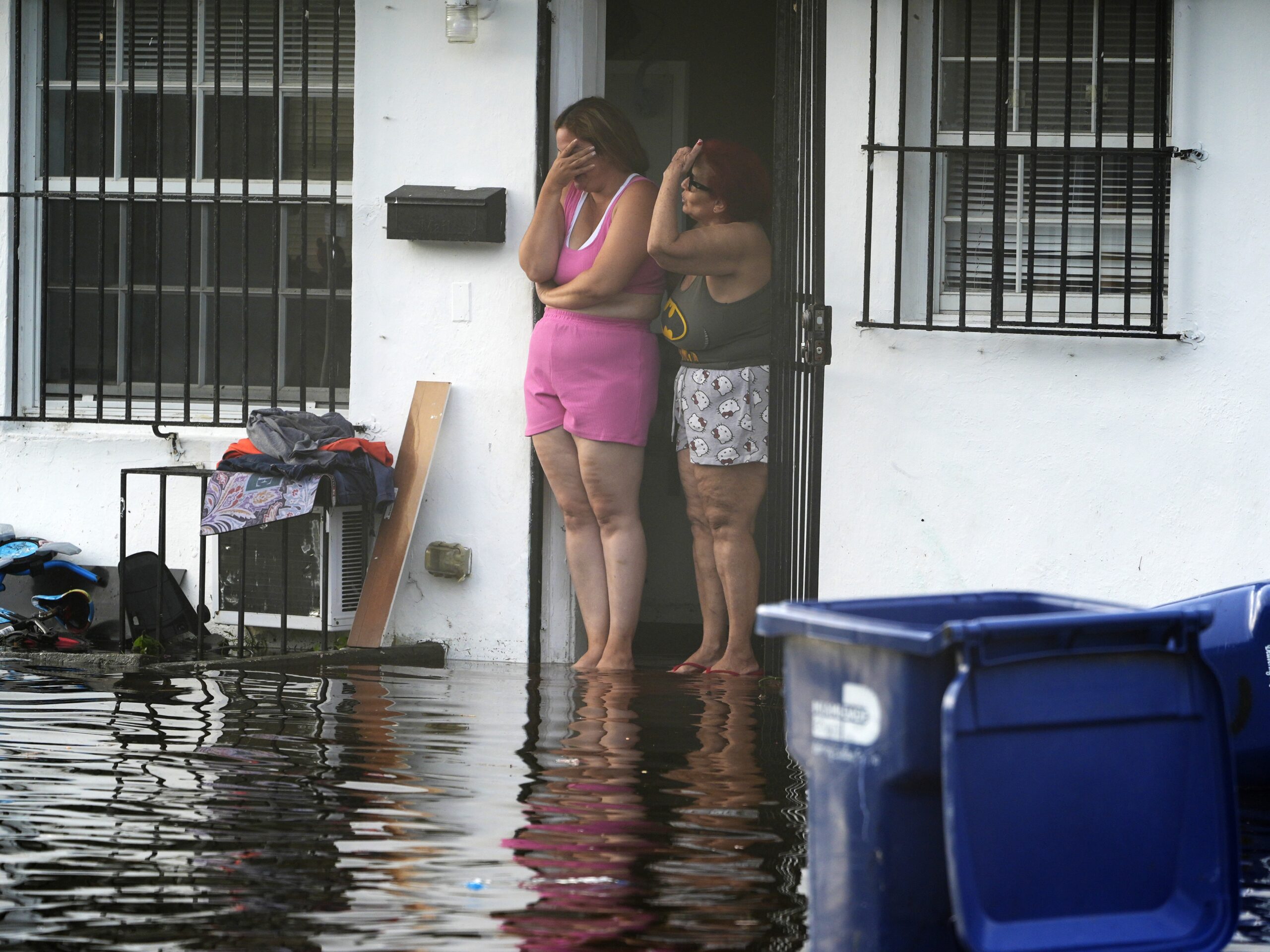As tropical storms continue to batter the Sunshine State, Florida has been warned to brace for more flash flooding this Friday. Discover essential preparation tips and stay informed on the latest weather updates.
Florida, known for its sunny beaches and beautiful weather, is facing another round of extreme weather conditions. Following a series of tropical storms, residents have been advised to prepare for more flash flooding this Friday. With the ever-changing climate patterns, it’s crucial to stay informed and ready for what Mother Nature might throw our way.

Florida Told to Prepare for More Flash Flooding Friday Following Tropical Storms
As we approach another turbulent weather event, it’s time to buckle down and ensure we’re ready for the worst. This article delves into the current situation, provides essential preparation tips, and answers some of the most pressing questions Floridians might have.
The Current Situation
Tropical Storms and Their Aftermath
Florida has been hit hard by several tropical storms over the past few weeks. These storms have left the ground saturated, rivers swollen, and communities on edge. The National Weather Service has issued warnings indicating that more flash flooding is likely to occur this Friday, exacerbating the already precarious situation.
Why Is Flash Flooding a Big Deal?
Flash flooding is incredibly dangerous because it can occur with little warning and cause significant damage in a short amount of time. Rapidly rising water can sweep away cars, damage homes, and put lives at risk. It’s essential to understand the gravity of the situation and take necessary precautions.
How to Prepare for Flash Flooding
1. Stay Informed
- Monitor Weather Updates: Keep an eye on the latest weather forecasts and alerts. Websites like the National Weather Service and local news stations provide real-time updates.
- Use Weather Apps: Download reliable weather apps that offer push notifications for severe weather alerts.
2. Create an Emergency Plan
- Evacuation Routes: Know your evacuation routes and have a plan in place for where to go if you need to leave your home quickly.
- Family Communication Plan: Ensure everyone in your household knows what to do and how to communicate in case of an emergency.
3. Prepare Your Home
- Clear Drains and Gutters: Make sure your drains and gutters are clear of debris to prevent water from backing up and flooding your home.
- Secure Outdoor Items: Bring in outdoor furniture and secure anything that could be blown away or cause damage during the storm.
4. Stock Up on Essentials
- Non-Perishable Food: Have enough food to last at least three days.
- Water: Store at least one gallon of water per person per day for at least three days.
- Medical Supplies: Keep a first aid kit and necessary medications on hand.
Common Questions About Flash Flooding
What Should I Do If I’m Caught in a Flash Flood?
If you find yourself caught in a flash flood, move to higher ground immediately. Avoid walking or driving through floodwaters. Just six inches of moving water can knock you down, and one foot of water can sweep your vehicle away.
How Can I Protect My Pets During a Flash Flood?
Make sure your pets are part of your emergency plan. Keep them indoors during severe weather, and ensure they have identification tags in case you get separated.
Is It Safe to Drive During a Flash Flood?
It’s best to avoid driving during a flash flood. If you must drive, never attempt to drive through flooded roads. Turn around, don’t drown!
The Aftermath of Flash Flooding
Assessing the Damage
Once the flooding has subsided, it’s crucial to assess the damage safely. Avoid walking or driving through floodwaters as they may be contaminated with sewage or other hazards. Document any damage with photos and contact your insurance company as soon as possible.
Cleanup and Recovery
- Safety First: Wear protective gear such as gloves and boots when cleaning up after a flood.
- Dry Out Your Home: Remove standing water and use fans and dehumidifiers to dry out your home. Mold can start growing within 24-48 hours, so it’s essential to act quickly.
- Discard Contaminated Items: Dispose of any items that have been contaminated by floodwaters, especially food, cosmetics, and medicines.

Staying Resilient in the Face of Future Storms
Strengthening Community Bonds
One of the best ways to stay resilient is by building a strong community network. Check on your neighbors, especially the elderly and those with young children. Share resources and information to help each other through tough times.
Investing in Flood Insurance
Consider investing in flood insurance if you don’t already have it. Standard homeowner’s insurance policies typically do not cover flood damage. Having adequate coverage can make a significant difference in your recovery process.
Advocating for Better Infrastructure
Support local and state initiatives aimed at improving infrastructure to withstand severe weather. Better drainage systems, elevated roads, and flood barriers can help reduce the impact of future storms.
Conclusion
With Florida told to prepare for more flash flooding this Friday following tropical storms, it’s more important than ever to be proactive and prepared. By staying informed, having an emergency plan, and taking steps to protect your home and loved ones, you can mitigate the risks associated with flash flooding. Remember, we’re all in this together, and by supporting one another, we can weather any storm that comes our way.
Stay safe, stay dry, and let’s hope for brighter, sunnier days ahead!
FAQs
Q: What’s the difference between a flash flood watch and a flash flood warning?
A: A flash flood watch means that conditions are favorable for a flash flood to occur, while a flash flood warning means that a flash flood is imminent or already happening.
Q: How can I receive emergency alerts about flash flooding?
A: You can receive emergency alerts through weather apps, local news stations, and by signing up for emergency alert services offered by your city or county.
Q: What should I include in an emergency kit?
A: Your emergency kit should include non-perishable food, water, a first aid kit, medications, important documents, flashlights, batteries, and any other essentials you may need.
By taking these precautions and staying vigilant, Floridians can better protect themselves and their homes from the dangers of flash flooding. It’s always better to be safe than sorry, especially when dealing with Mother Nature’s unpredictability. Stay prepared and keep an eye on the skies!
Also Read about A to Z Sportz




